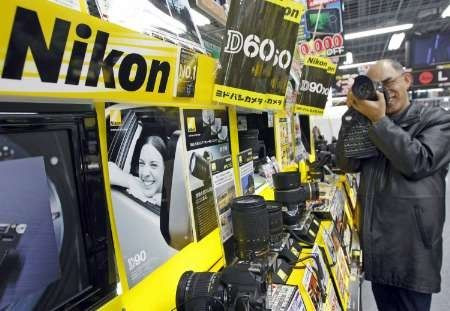Nikon, Apple, McDonald's Escape Unscathed From China Consumer Rights Report Ordeal

This year’s annual Consumer Gala report by China’s state television station CCTV targeted Japanese camera company Nikon Corp. (TYO:7731). In the past, CCTV has taken on some of the world’s biggest international brands, including Apple Inc. (NASDAQ: AAPL) and McDonald’s (NYSE: MCD). But aside from being a big public relations problem, usually the investigative reports do not actually affect business.
The annual investigative program, referred to as the “3.15 Gala” because of the date it falls on annually, March 15, or Consumer Rights Day, took on Nikon for selling a faulty product. The reporters found that the $2,000 D600 model, a digital single-lens reflex camera that Nikon began selling in 2012, had a recurring problem in which black dots appeared on pictures as a result of dust falling into camera sensors.
Nikon swiftly responded to the reports saying that it would provide free checks and cleaning services, or in some cases, full replacements, as it began removing the D600 from Chinese shelves. On Monday, the first day of trading following the Saturday report, Nikon shares in Tokyo took a small dip, dropping by 1.65 percent.
The reality of the PR flub and having to win back customers with good service and recalls is a lot more dire than what is actually reflected in the stock markets.
Take a look at the some of the past companies CCTV targeted in its consumer rights reports, and how the stocks reacted to the news:

The media backlash for several of these brands was ultimately more of a problem for the companies than the actual effect on stocks. While in many cases the image of a brand was momentarily tarnished, stocks were not immediately affected.
CCTV’s consumer rights reports are still feared by companies because a lot of the time, a brand’s China relevance can live and die by its media perception, even if it can survive financially. Social media backlash following allegations about Apple’s customer service discrimination in China snowballed for a couple weeks, as Apple tried to quietly resolve the issue. Increased anger on the issue from netizens finally resulted in a Chinese-language apology from CEO Tim Cook.
Because, if there’s one thing that is known about Chinese social media, it’s that hell hath no fury like the Internet public scorned.
© Copyright IBTimes 2024. All rights reserved.






















